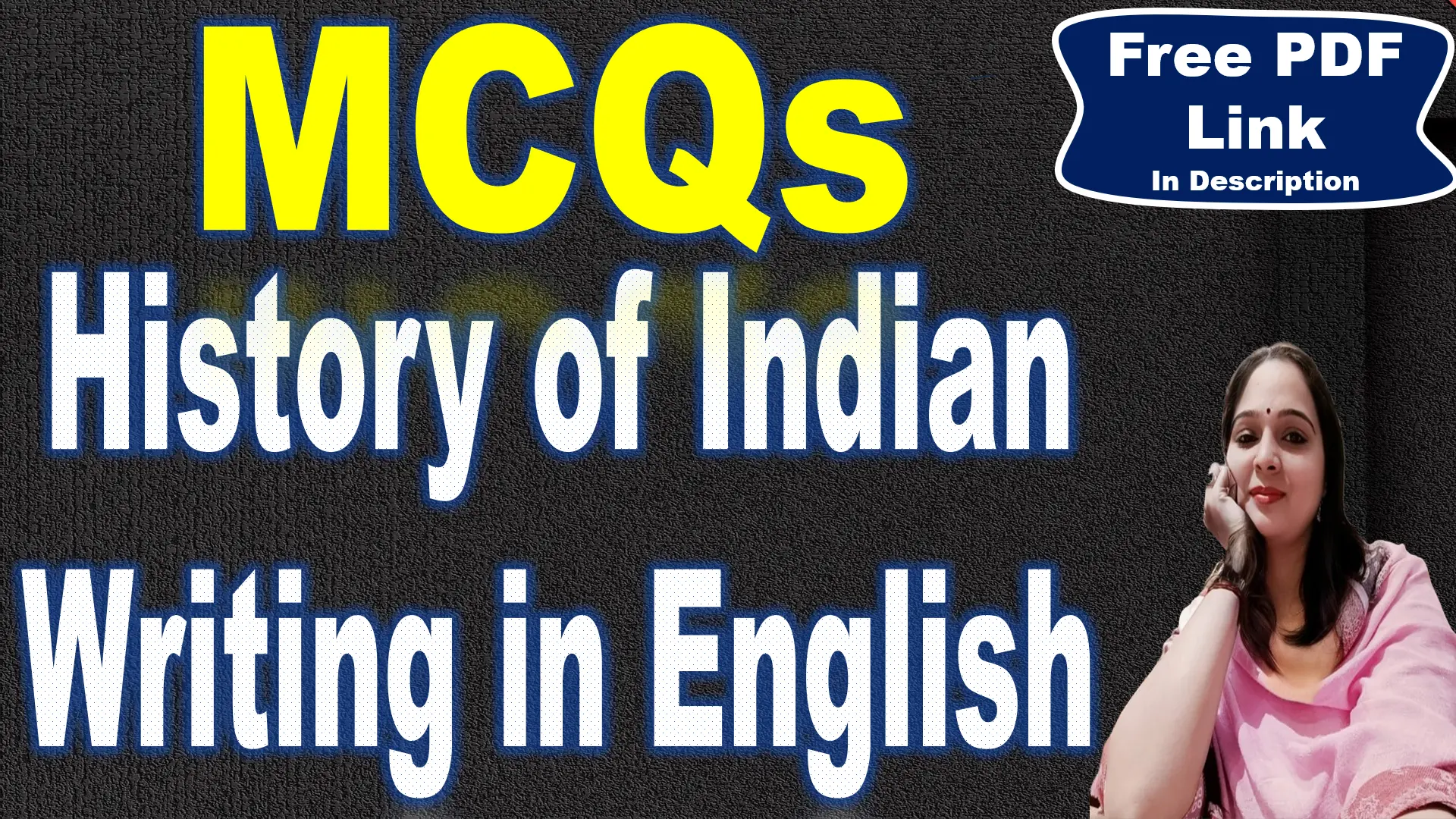
21. What does Yeats hope his daughter’s bridegroom will bring her to?
a) A life of adventure
b) A house of custom and ceremony
c) A world of intellectual debate
d) A place of solitude
Answer: b) A house of custom and ceremony
Explanation: Yeats wishes her bridegroom brings her to “a house / Where all’s accustomed, ceremonious.” Yeats desires that his daughter’s future marriage be grounded in tradition and ceremony. A “house of custom and ceremony” symbolizes a life where respect, ritual, and structure guide the relationship. He values the steadiness that these traditions provide, seeing them as a counterbalance to the chaotic and unpredictable nature of life. Yeats believes that a structured, ceremonial life will offer his daughter the stability she needs to grow, thrive, and preserve her innocence in an uncertain world.
22. What does Yeats associate with “arrogance and hatred”?
a) Wealthy elites
b) Wares peddled in thoroughfares
c) The beauty of youth
d) The innocence of nature
Answer: b) Wares peddled in thoroughfares
Explanation: He says, “Arrogance and hatred are the wares / Peddled in the thoroughfares,” meaning they’re like cheap goods sold on busy streets. These negative qualities are “peddled” in everyday life, implying that they are easily accessible but ultimately empty and harmful. Yeats associates these traits with the public and commercial sphere, contrasting them with the more refined, noble aspects of life that come with tradition, ceremony, and deeper human connections.
23. What tree does Yeats use as a symbol of stability and permanence?
a) Oak
b) Elm
c) Laurel
d) Pine
Answer: c) Laurel
Explanation: He hopes she lives “like some green laurel / Rooted in one dear perpetual place.” The laurel tree is a symbol of permanence, victory, and honor. Yeats chooses the laurel to represent the kind of life he hopes his daughter will lead—stable, enduring, and rooted in virtuous tradition. The laurel also has mythological associations, often used to crown victors and poets, symbolizing an enduring legacy of achievement. By invoking the laurel, Yeats is wishing for his daughter to lead a life marked by quiet strength and lasting beauty, grounded in timeless values.
24. What is the central theme of “A Prayer for My Daughter”?
a) The power of nature
b) A father’s hopes for his daughter’s virtues and happiness
c) The inevitability of conflict
d) The pursuit of intellectual freedom
Answer: b) A father’s hopes for his daughter’s virtues and happiness
Explanation: The central theme of Yeats’ poem revolves around his deep hopes and fears for his daughter’s future. He expresses a wish for her to grow up with inner strength, kindness, and wisdom, free from the dangers of excessive beauty and superficiality. Yeats also reflects on the turbulence of the world and wishes for her to live a peaceful, grounded life. The poem is not just about beauty or love, but about a father’s concern for his daughter’s happiness and moral well-being in an uncertain world.
25. What does the “cradle-hood and coverlid” symbolize in the poem?
a) The innocence of childhood
b) The chaos of the world
c) The poet’s fears
d) The beauty of nature
Answer: a) The innocence of childhood
Explanation: The “cradle-hood and coverlid” are the baby’s blanket and hood, keeping her snug while she sleeps. Yeats uses them to show her pure, innocent state—safe and untouched by the stormy world outside. It’s not about chaos, fear, or nature’s beauty; it’s her childhood innocence he’s protecting. This contrast with the storm highlights how fragile and precious she is to him.
26. What does the “one bare hill” and “Gregory’s wood” represent?
a) A distant memory
b) Obstacles to the storm
c) Symbols of Irish landscape
d) The poet’s imagination
Answer: c) Symbols of Irish landscape
Explanation: The “one bare hill” and “Gregory’s wood” are references to the Irish landscape, adding a layer of local color and context to the poem. These natural elements, part of the Irish scenery, reflect the environment that shaped Yeats’ poetry and identity. They also function as barriers to the “howling” wind, serving as physical symbols of resistance against the forces of chaos and uncertainty. The Irish landscape is integral to Yeats’ poetic vision, representing both beauty and hardship.
27. What emotion dominates the poet’s mind as he walks and prays?
a) Joy
b) Hope
c) Anger
d) Gloom
Answer: d) Gloom
Explanation: Yeats says, “Because of the great gloom that is in my mind,” showing he’s feeling heavy and sad. As Yeats walks and prays, the dominant emotion is one of gloom, reflecting his concerns about the future and the uncertain world his daughter will inherit. The stormy setting and the turmoil of the times contribute to this mood, which contrasts with the innocence and purity of his daughter sleeping in the cradle. The gloom represents Yeats’ anxiety about the chaos, violence, and confusion surrounding the post-war world, and his fears for his daughter’s safety and happiness in such an environment.
28. What does the “sea-wind scream upon the tower” suggest about the poem’s tone?
a) A sense of peace
b) A mood of celebration
c) A tone of indifference
d) A feeling of menace
Answer: d) A feeling of menace
Explanation: The “sea-wind scream upon the tower” creates an image of a violent, unsettling atmosphere. The wind, described as screaming, suggests a tone of menace and danger. It adds to the sense of foreboding in the poem, implying that the future may be filled with challenges and threats. This harsh, uncontrollable wind contrasts with the peaceful, protected image of the child in the cradle, emphasizing Yeats’ concerns about the vulnerability of his daughter in a chaotic, unpredictable world.
29. What does Yeats fear excessive beauty might cause his daughter to lose?
a) Her intelligence
b) Her natural kindness
c) Her wealth
d) Her independence
Answer: b) Her natural kindness
Explanation: Yeats fears that excessive beauty could overshadow his daughter’s inner qualities, particularly her natural kindness. He worries that if she is too focused on her outward appearance, she might become vain and lose the empathetic, compassionate nature that defines a person’s true beauty. Yeats emphasizes that kindness and emotional connection are more valuable than physical beauty, which can be fleeting and deceptive. His hope is that his daughter will remain grounded and kind, unaffected by the superficial allure of excessive beauty.
30. Which historical figure is implied by “that great Queen” who “rose out of the spray”?
a) Cleopatra
b) Medusa
c) Queen Elizabeth
d) Venus (Aphrodite)
Answer: d) Venus (Aphrodite)
Explanation: The phrase “that great Queen who rose out of the spray” refers to Venus, the Roman goddess of love and beauty, who, according to myth, emerged from the sea foam. Yeats uses this allusion to highlight the destructive power of beauty and love. Venus, despite her captivating beauty, is also associated with conflict and desire that leads to chaos. By invoking Venus, Yeats underscores his belief that beauty, when not balanced with inner virtues, can lead to trouble and misfortune, much as it did in mythological stories.
31. What does the phrase “bandy-leggèd smith” refer to?
a) A foolish suitor
b) Hephaestus (Vulcan), Venus’s husband
c) A local craftsman
d) A symbol of strength
Answer: b) Hephaestus (Vulcan), Venus’s husband
Explanation: The “bandy-leggèd smith” refers to Hephaestus (Vulcan), the Greek god of blacksmithing and metalworking. In mythology, Hephaestus is often depicted as having a physical imperfection, specifically “bandy legs,” which makes him less traditionally handsome compared to other gods. Despite his physical appearance, Hephaestus is married to Venus (Aphrodite), the goddess of love and beauty. Yeats uses this allusion to highlight that even a figure of physical imperfection can be a worthy and powerful partner, contrasting with the superficiality of beauty.
32. What does Yeats suggest about courtesy in the fifth stanza?
a) It is an outdated virtue
b) It should be her primary quality
c) It is less important than beauty
d) It leads to arrogance
Answer: b) It should be her primary quality
Explanation: Yeats says, “In courtesy I’d have her chiefly learned,” meaning he wants her to be polite and gracious above all. Yeats emphasizes that courtesy should be one of the most important qualities for his daughter. He believes that being courteous—showing kindness, politeness, and respect toward others—is a key virtue that will guide her interactions with the world. By prioritizing courtesy, Yeats suggests that his daughter will gain genuine affection and respect from others, which is far more valuable than the fleeting nature of physical beauty. Courtesy fosters meaningful relationships based on mutual respect and consideration.
33. What does the “flourishing hidden tree” symbolize?
a) A life of fame
b) A quiet, virtuous existence
c) A rebellious spirit
d) A connection to nature
Answer: b) A quiet, virtuous existence
Explanation: “May she become a flourishing hidden tree” paints his daughter as a thriving yet private tree. The “flourishing hidden tree” symbolizes a life of peace, virtue, and inner growth, rather than public recognition or fame. Yeats imagines his daughter’s life as being like this tree, thriving in quiet solitude, where her virtues, like the tree’s growth, are nurtured away from the distractions and temptations of the world. The tree’s “hidden” nature suggests that a life well-lived doesn’t require the external validation of others but grows in strength and wisdom within the privacy of her own self.
34. What bird is used as a metaphor for the daughter’s thoughts?
a) Sparrow
b) Linnet
c) Raven
d) Dove
Answer: b) Linnet
Explanation: Yeats hopes her thoughts are “like the linnet be”. Yeats uses the linnet, a small, gentle songbird, as a metaphor for his daughter’s thoughts. The linnet’s song is free, melodic, and light, suggesting that the poet hopes for his daughter’s mind to be filled with pure, natural, and positive thoughts. The linnet’s carefree nature mirrors Yeats’ desire for his daughter to grow up with a mind that is free from negativity, capable of joy and beauty without the burden of the darker aspects of life.
35. What does Yeats imply about hatred in the seventh stanza?
a) It strengthens the mind
b) It is the chief of all evils
c) It is unavoidable
d) It inspires creativity
Answer: b) It is the chief of all evils
Explanation: Yeats writes, “to be choked with hate / May well be of all evil chances chief,” suggesting hatred is the worst thing that can happen. Yeats asserts that hatred is the “chief of all evils.” This suggests that for Yeats, hatred is the most destructive and corrupting force a person can harbor. He believes that hatred leads to moral decay and prevents personal growth and spiritual peace. Yeats argues that hatred poisons the soul, causing division, and impedes the ability to connect with others in a meaningful, loving way. It is the antithesis of the virtues he wishes for his daughter to embody.
36. What does the “loveliest woman born” bartering “Plenty’s horn” signify?
a) A loss of innocence
b) A rejection of material wealth for pride
c) A gain of wisdom
d) A triumph over adversity
Answer: b) A rejection of material wealth for pride
Explanation: The “loveliest woman born” bartering “Plenty’s horn” signifies the idea of a woman rejecting material wealth and abundance in favor of her pride or vanity. Yeats uses the symbol of the “horn of Plenty” to represent wealth and material abundance. When the woman “barters” it, he suggests that she is trading away this wealth for something less tangible, such as arrogance or a desire for attention. Yeats is critical of this exchange, implying that beauty and pride can lead one to sacrifice more important values like kindness and wisdom.
37. What does Yeats mean by “opinions are accursed”?
a) They lead to intellectual growth
b) They cause division and strife
c) They are necessary for progress
d) They reflect beauty
Answer: b) They cause division and strife
Explanation: Yeats refers to “opinions” as “accursed” to convey that strongly held beliefs and opinions often lead to conflict and division. In his view, rigid opinions create separation between people and hinder mutual understanding. Yeats believes that an intellectual or ideological stance can foster hostility, leading individuals to become entrenched in their views without allowing room for compromise or empathy. This suggests that opinions, especially when held dogmatically, can be destructive to personal and societal harmony.
38. What is the “old bellows full of angry wind” a metaphor for?
a) The poet’s frustration
b) A life driven by hatred and pride
c) The stormy weather
d) A broken instrument
Answer: b) A life driven by hatred and pride
Explanation: The “old bellows full of angry wind” is a metaphor for a life driven by hatred and pride. Just as a bellows forces air into a fire to stoke it, hatred and pride fuel negative emotions, inflaming the individual with bitterness and resentment. Yeats uses this image to describe a life where these destructive emotions dominate, preventing peace and clarity. The metaphor suggests that such a life is driven by forces that stifle growth and can burn bridges with others, much like a fire that consumes everything in its path.
39. What does Yeats associate with “Heaven’s will”?
a) The soul’s own sweet will
b) The power of nature
c) The pursuit of beauty
d) The rejection of ceremony
Answer: a) The soul’s own sweet will
Explanation: He says, “its own sweet will is Heaven’s will,” linking a happy, free soul to what’s divine. Yeats suggests that “Heaven’s will” aligns with the soul’s own “sweet will,” indicating that true harmony and fulfillment come when a person’s inner desires and actions are in alignment with higher, spiritual forces. In this view, the “sweet will” of the soul represents a natural, authentic alignment with goodness, peace, and self-fulfillment. Yeats implies that when a person follows their true inner nature—free from external pressures, hatred, or confusion—they are living in accordance with the divine or universal will.
40. What does the poet suggest is born from “custom and ceremony”?
a) Arrogance and pride
b) Innocence and beauty
c) Conflict and hatred
d) Wealth and power
Answer: b) Innocence and beauty
Explanation: Yeats asks, “How but in custom and in ceremony / Are innocence and beauty born?” Yeats suggests that “custom and ceremony” give birth to innocence and beauty, implying that traditions, rituals, and societal structures help preserve the purity and grace of life. Ceremony provides a framework that guides behavior, fostering respect, stability, and harmony. Through such practices, individuals are able to maintain their innocence, avoid the corruptions of vanity and pride, and find beauty in simplicity and tradition. Yeats views these practices as essential for cultivating a virtuous, meaningful life.





